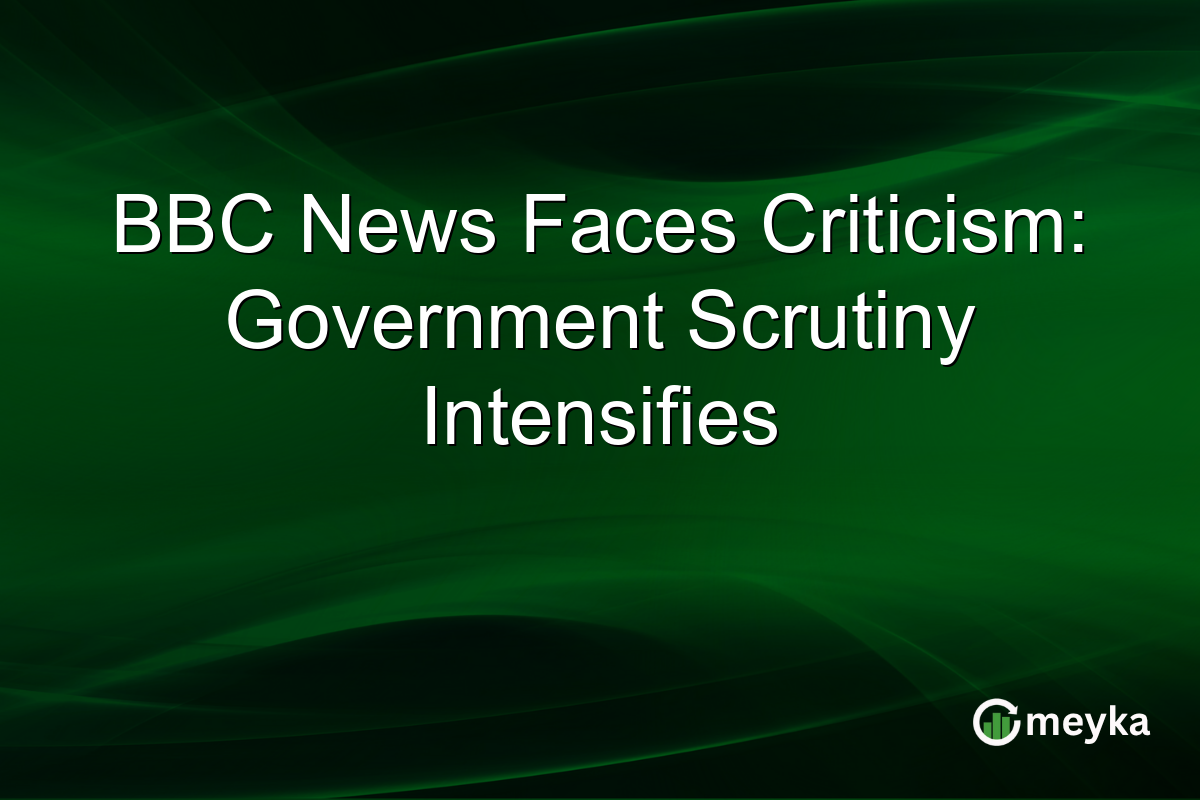BBC News Faces Criticism: Government Scrutiny Intensifies
BBC News is once again in the spotlight, facing criticism from the UK government for its alleged impartiality issues. In recent parliamentary sessions, lawmakers questioned the broadcaster’s neutrality, fueling debates on media regulation. This controversy could lead to significant changes in how the BBC and similar entities operate in the UK, affecting public trust and media policy. Let’s explore this developing story in detail.
The Source of Controversy: BBC’s Impartiality
The BBC has long been a symbol of trusted journalism. However, recent government criticism highlights concerns about impartiality in its reporting. This issue was brought to light during heated parliamentary debates where several lawmakers expressed dissatisfaction with the broadcaster’s coverage on contentious subjects. They argue that BBC News might favor certain political perspectives, potentially skewing public perception.
A discussion on X (formerly Twitter) intensifies this discourse, with users questioning whether the BBC remains unbiased in its content. This shows how critical public perception can impact broadcasting entities, influencing their policies and operations.
Read more on Reuters.
Government Scrutiny and Calls for Regulation
This criticism has led to increased scrutiny and calls for stricter regulation of the BBC. Lawmakers argue that current oversight might be insufficient in ensuring impartiality, advocating for institutional reforms. These calls come with suggestions for updating media regulation laws to hold public broadcasters more accountable. The potential for regulatory reform could redefine the operational landscape for UK media, setting new standards for impartiality. Such changes would require the BBC to adjust its editorial policies, possibly influencing its programming and outreach strategies. This debate intersects with broader themes of media trust and the role of public broadcasting.
Impacts on UK Media Policy and Public Broadcasting
If regulatory reforms are enacted, it could lead to significant shifts in UK media policy. Public broadcasters like the BBC might face more stringent guidelines around impartiality, altering their approach to news coverage and editorial decisions. This movement might also affect how such institutions secure public funds and reinforce accountability measures.
Public trust is at stake as these developments unfold. As a cornerstone of information, the BBC’s credibility influences not just audiences but also international perceptions of British media. Strengthening regulation could thus restore faith in public broadcasting, addressing concerns over impartiality.
Explore more on WSJ.
Final Thoughts
The ongoing debates about BBC News and government criticism underscore significant themes in media regulation and trust. As lawmakers push for reforms, the potential changes could reshape the dynamics of public broadcasting in the UK. These adaptations aim to uphold neutrality and accountability, restoring public confidence in the nation’s media outlets. It’s crucial for stakeholders to engage in these discussions, ensuring that reforms enhance—not hinder—the values of free and impartial journalism.
FAQs
Critics argue that BBC News may display bias in its reporting, influencing public perception. This concern emerged from parliamentary debates questioning the broadcaster’s neutrality on various topics.
Lawmakers propose reforms to enhance oversight and accountability of broadcasters. Potential changes include stricter guidelines on impartiality, impacting operational and editorial policies.
Public trust is threatened by criticism of impartiality. Strengthening regulation could restore confidence by ensuring fair and balanced reporting, reaffirming the BBC’s role as a reliable news source.
Disclaimer:
This is for information only, not financial advice. Always do your research.






